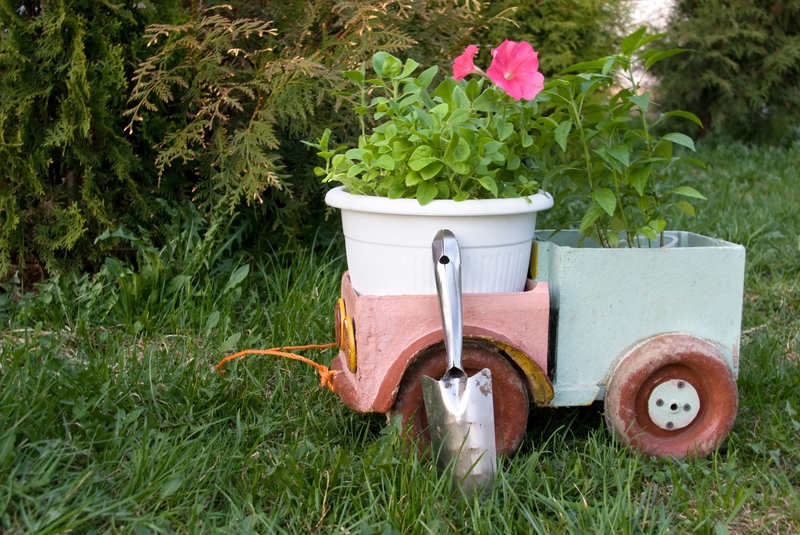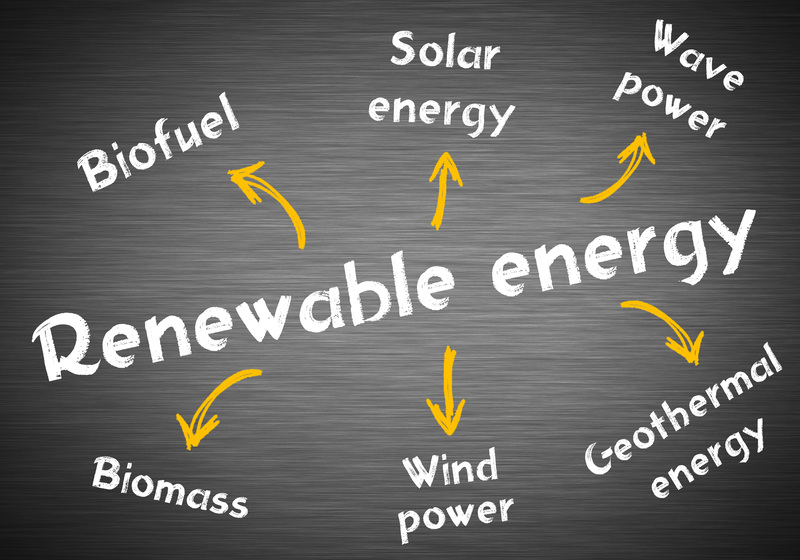Rubbish Removal Bags vs Skips - Which Waste Disposal Solution Is the Right Choice?
Are you tackling a home renovation, garden clear-out, or moving house? Chances are you've asked yourself whether rubbish removal bags or the traditional skip is best for your project. In today's world, efficient and eco-friendly waste disposal is more important than ever, so understanding your options truly matters. In this article, we'll break down the key differences, advantages, disadvantages, and cost factors of rubbish removal bags versus skips. By the end, you'll be equipped to make the smartest choice for your needs and budget.
What Are Rubbish Removal Bags?
Rubbish removal bags, also known as waste removal bags or man & van bags, are heavy-duty, flexible sacks designed to hold and transport various kinds of non-hazardous waste. They're widely available from DIY stores, local councils, and waste disposal services, and are often made from tough woven polypropylene, allowing them to withstand bulky or heavy loads.
Types of Rubbish Removal Bags
- Small Bags (up to 1 tonne): Suitable for garden waste, small clear-outs, or minor DIY jobs.
- Medium Bags (1-1.5 tonnes): Perfect for room refurbishments, furniture disposal, or kitchen/bathroom rip-outs.
- Large Bags (up to 1.5 tonnes): Designed for loft clearance, builders waste, and bulky items.

What Is a Skip?
A skip is a large, open-topped container used for the disposal of bulk wastes from construction, renovation, or large-scale clearances. Skips are delivered and collected by specialist trucks, and come in a wide range of sizes, from compact 'mini' skips to industrial roll-on roll-off containers.
Common Skip Sizes
- Mini Skips (2-3 cubic yards): Best for small domestic jobs.
- Midi Skips (4-5 cubic yards): Great for kitchen and bathroom refurbishments or garden projects.
- Builders Skips (6-8 cubic yards): Ideal for larger renovations and bulky items.
- Maxi/Industrial Skips (10-40 cubic yards): Usually reserved for big construction sites or major commercial waste.
Comparing Rubbish Removal Bags and Skips: The Key Factors
Let's dive into a side-by-side comparison on the main points to help you choose the most efficient waste disposal solution.
1. Convenience and Flexibility
- Rubbish Removal Bags: Can be stored flat before use, require no pre-booking or permits in most cases, and can be filled gradually at your own pace. The collection is usually arranged by phone or online when you're ready, ensuring maximum flexibility.
- Skips: Must be delivered by a truck and typically need scheduling in advance. If not placed entirely on private property, you may need a council permit for roadside placement. Skips have set hire periods, so rushing your project could be inevitable.
2. Space Considerations
- Rubbish Removal Bags: Designed to fit conveniently in driveways, gardens, or small spaces, making them ideal for urban homes or tight areas. Because they sit flat when empty, there's no wasted storage space.
- Skips: Take up a lot more room and require access for a large delivery vehicle. Not suitable for properties without driveways or sufficient frontage.
3. Volume and Capacity
- Rubbish Bags: Generally hold between 1-1.5 tonnes of waste (depending on the brand and size). Best for small to medium projects or properties with limited rubbish volume.
- Skips: Offer a much wider variety of capacities (up to 40 cubic yards). They're the preferred choice for major renovations, full house clear-outs, builder's rubble, and substantial commercial jobs.
4. Types of Waste Accepted
- Rubbish Removal Bags: Accept general household waste, garden debris, furniture, non-electrical items, and light building rubbish. Prohibited items often include plasterboard, electricals, hazardous/special waste, liquids, or asbestos.
- Skips: Can handle a wider range of materials, but restrictions still apply. You often need to arrange a specialist skip for plasterboard, soil/hard-core, or hazardous waste. Always check permitted materials with your provider.
5. Ease of Collection
- Rubbish Bags: Collection is typically as simple as booking online or calling a collection service. The bag is craned onto a truck--no need for you to transport or move it yourself.
- Skips: Must be sited so that a skip lorry can easily access them on collection day, and parked cars or obstacles can create issues.
6. Environmental Impact
- Rubbish Removal Bags: Many providers sort and recycle the waste, with some offering landfill diversion guarantees. Because bags are lighter to transport and require less haulage, their carbon footprint is theoretically lower for small to medium loads.
- Skips: Larger vehicles and heavier loads may create more emissions, but leading skip firms also offer high recycling rates and greener services.
7. Cost Comparison
- Rubbish Bags: Generally cheaper for minor projects due to their pay-as-you-use model--no need to pay for unused capacity or long hire periods. You only purchase and arrange collection for what you need.
- Skips: More cost-effective for very large quantities of waste. However, costs increase if you need council permits, overfill charges, or require extra hire time.
When to Choose Rubbish Removal Bags
- Small to medium waste volumes: Ideal for DIY projects, single-room clear-outs, or garden waste.
- Limited access or space: Bags can fit through doorways, side passages, or confined urban gardens where skips cannot reach.
- Flexible timeline: Fill at your own pace without watching the clock.
- Budget-conscious jobs: Avoids the cost of unnecessary skip capacity or long-term hire.
When to Choose a Skip
- Large volumes of waste: Full renovations, multiple rooms, or building projects.
- Bulky, heavy items: Bricks, hardcore, soil, large furniture, and commercial rubbish.
- Speed and simplicity: Load all waste in one go and have it removed at once.
- Varied waste streams: Greater flexibility with material types, especially with specialized skip services.
Frequently Asked Questions About Rubbish Removal Bags and Skips
How long can I keep rubbish removal bags and skips?
- Bags: No strict time limits--you keep it as long as you need before arranging your collection.
- Skips: Standard hire periods are 7-14 days, after which extra charges may apply.
Do I need a permit?
- Rubbish removal bags placed on your property don't require permits.
- Skips on public roads or pavements nearly always need a council permit, which you must arrange and pay for.
What happens to the waste?
Both skips and rubbish removal bag services sort, recycle, or responsibly dispose of your rubbish at licensed facilities, minimizing landfill and encouraging sustainable practices.
10 Key Advantages of Rubbish Removal Bags
- Easy to store and handle
- No permit needed for most home placements
- Cost-effective for smaller loads
- Flexible collection times
- Less disruption to your property or neighbors
- Wide range of bag sizes available
- No need for heavy vehicles or driveway access
- Minimal carbon footprint for small projects
- Safer for homes without heavy traffic
- Ideal for urban and space-restricted locations
The Downsides: When Rubbish Removal Bags Aren't Enough
- Limited capacity compared to skips
- Not suitable for very heavy items (bricks, concrete, soil in bulk)
- Certain items (like plasterboard, hazardous waste) are banned
- May be impractical for whole-house clearances or construction debris
Skip Hire Pros and Cons
Advantages of Skips
- Huge capacity for bulk waste
- Can accommodate heavier, bulkier materials
- Fast and efficient for large jobs
- Available for all types of waste (with correct skip type)
Downsides of Skips
- May require costly permits for roadside use
- Takes up significant space during hire
- More expensive for smaller, less waste-intensive projects
- Potential for neighbor disputes over access or visual impact
- Shorter and less flexible hire periods
What Does Rubbish Removal Bag Collection Cost?
Prices for collection services vary by region, bag size, and provider--but as a general guide, expect:
- Small bags: from ?40-?60 including collection
- Standard/Midi bags: from ?75-?110 including collection
- Large/Builder bags: from ?120-?180 including collection
These prices will often compare favourably to hiring a skip, especially once council permits and hire duration are factored in.
Skip Hire Cost Guide
- Mini skip (2 yards): ?80-?120 hire
- Midi skip (4-5 yards): ?120-?180 hire
- Builder's skip (6-8 yards): ?200-?350 hire
- Council permit: ?35-?70 extra (if needed)
- Extra hire: ?20-?40 per additional week
Environmental Impact: Which Is Greener?
The world is waking up to the dangers of landfill and unsustainable waste. Most reputable companies now recycle or repurpose as much collected rubbish as possible. Bag services are generally lower-impact for smaller amounts of household waste, while skips, due to their size and heavy transport needs, have a larger footprint but can shift much more in a single journey.

Conclusion: Which Is the Smarter Alternative for Your Waste?
There's no one-size-fits-all answer, but here's the key takeaway:
- For small to medium clear-outs, tight access, and cost sensitivity, rubbish removal bags often provide the best blend of cost, convenience, and minimal fuss.
- If you have large-scale projects with heavy, bulky waste, skip hire is unbeatable for speed and capacity--provided you have space.
In either case, always check what waste your chosen provider will accept, compare quotes, and favour companies with high recycling and ethical disposal standards. By matching your project needs to the right solution, you'll save money, time, and reduce your environmental impact.
Make the Smart Waste Disposal Choice Today
Ready to tackle your next clearance or renovation? Assess your requirements, compare skip hire and rubbish bag solutions, and choose the method that fits your project and values. As the trends move toward smarter alternatives to skips, rubbish removal bags are rising in popularity--but for many jobs, the reliability and capacity of a skip is still hard to beat.
Need help choosing? Contact local waste disposal services, check their environmental credentials, and get transparent quotes. The difference you make isn't just clearing space--it's helping create a cleaner future.
